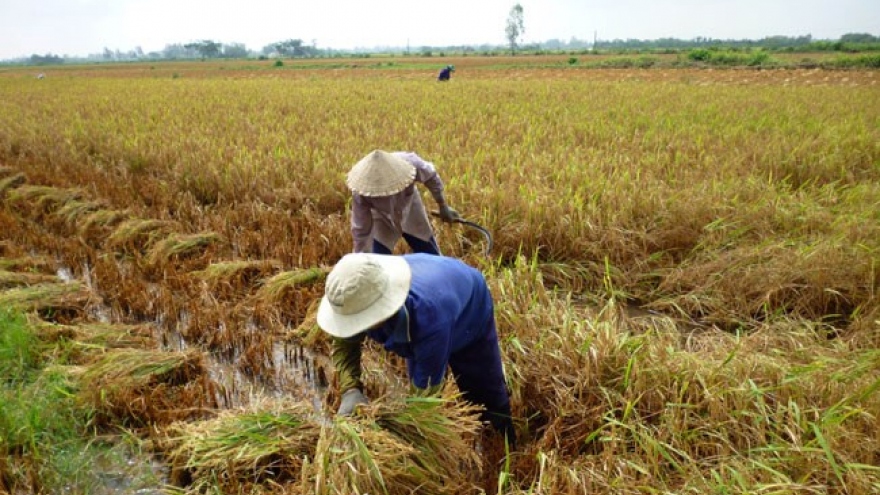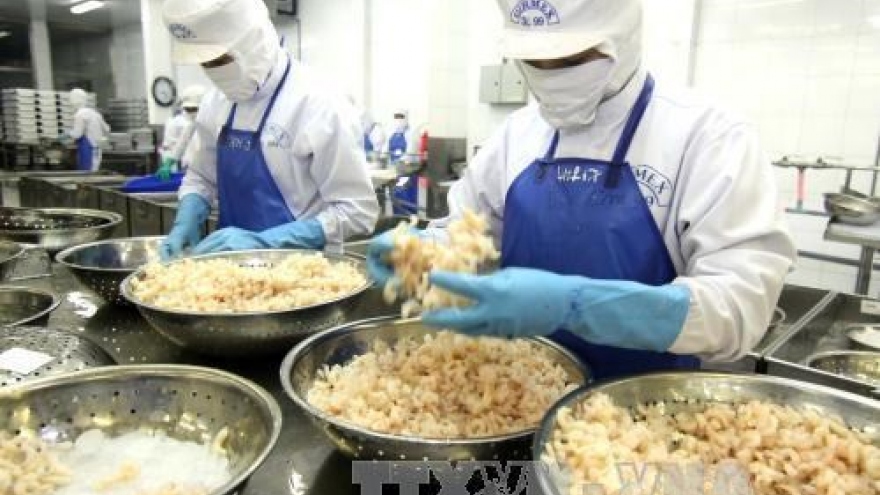Mekong Delta encouraged to take advantage from international trade deals
Economists have urged authorities in the Cuu Long (Mekong) Delta to create a start-up environment and encourage business incubations to take full advantage of the ASEAN Economic Community (AEC) and Trans-Pacific Partnership (TPP).
At a conference held on March 30 in Can Tho, organised by the Can Thobranch of the Vietnam Chamber of Commerce and Industry (VCCI), local authorities, economists and members of the business community discussed the economic impact of the new agreements on the region.
Participants suggested changes to macro-economic policy that would be more in line with the AEC and free trade agreements.
They noted that although enterprises would have more opportunities to expand their markets and enhance competitiveness, they would also face tougher competition.
 |
Speaking at the conference, Vo Hung Dung, director of VCCI Can Tho, said the region should transform its economic and labour structure.
Vo Thanh Thong, chairman of the Can Tho People’s Committee, urged the local business community to improve linkages to take advantage of opportunities.
Vietnam has concluded a number of free trade agreements, including TPP, ASEAN Regional Comprehensive Economic Partnership (RCEP)+6, EU, South Korea, Russia-Belarus-Kazakhstan and EFTA (4 Central and Northern European countries).
Most speakers agreed that without the correct strategy in a more liberalised international trade environment, Vietnamese businesses may face defeat on their “home field”.
Vo Hung Dung, director of VCCI Can Tho, noted that Mekong Delta was a major economic region making up 19.5% of Vietnam’s population, and a dynamic hub for exporting rice, aqua-products, fruits and vegetables.
The Delta has 51,000 businesses with annual export value of some US$11.5 billion.
Vo Tri Thanh, deputy director of Central Institute of Economic Management, said the FTAs would open up huge opportunities, especially for agricultural and aqua production.
The trade agreements would cut tax rates to zero per cent, thereby reducing production costs and increasing competitiveness.
However, Thanh warned that the agricultural sector must change production methods, restructure and shift to large-scale and chain production, promote green growth and safe food, and better market their brands.
Economist Le Đang Doanh said businesses must grasp opportunities to expand export markets as tax rates would be lower and imports would have more favourable access.
He said such sectors as garment, footwear, bags, electronics, wood-based products, which are based on low-cost production and skills, could expand exports to the EU and under the TPP. But there will be competition among AEC members.
Local businesses must develop linkages and value chains to meet standards and demands of specific markets like Japan, the Republic of Korea, the US and Europe, he added.
They should also improve key human resources and invest in e-commerce.
Experts also called on businesses in the region to increase added value of their products, develop new products and markets, and diversify brands.
Local authorities in the Delta were urged to improve the business environment, and continue to keep abreast of information on macro-economic policy and trade agreements. They were also told to be transparent in providing information.
The Mekong Delta is home to over 53,000 enterprises, with 40% operating in trade, 20% in industry, nearly 14% in construction, and 7% in the agricultural and seafood sectors.



